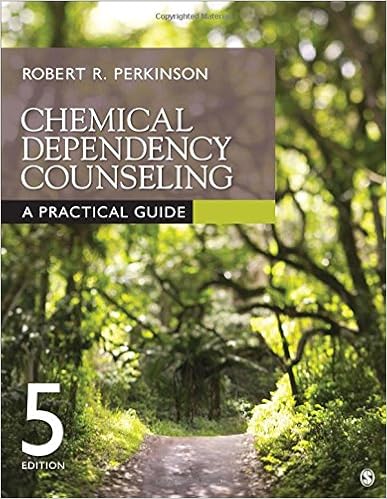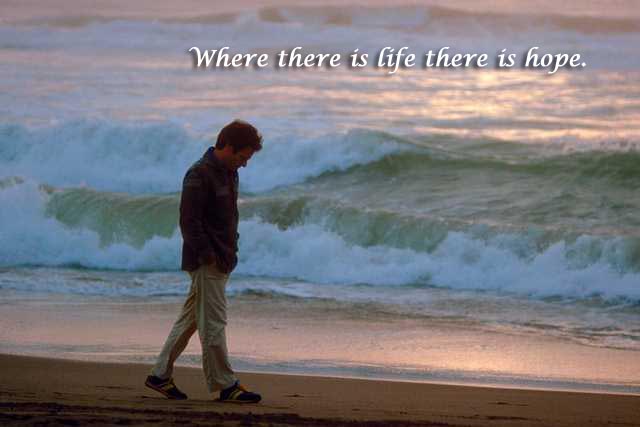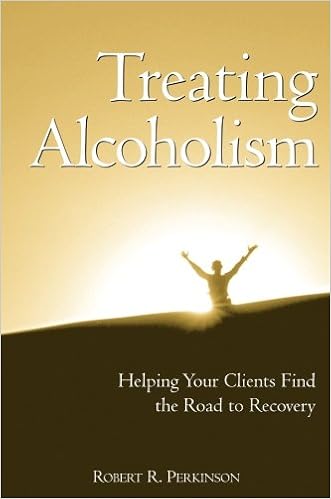Alcoholism Treatment | Addiction Treatment
Alcoholism Treatment: Creating a loving atmosphere
Alcoholism Treatment: The denial that fuels addiction
How do people who need alcoholism treatment end up being such liars? People who need alcoholism treatment, drug treatment, teen drug treatment, or gambling treatment tell incredible lies. Addicts lie when they have to, and they lie when they don't have to. They lie to get out of trouble, and the lies get them into more trouble. They lie to increase their pleasure and they lie to wallow in their self-pity. Alcoholism treatment is necessary to show the addicted person the truth about the extent of their alcohol or drug problem.
Why do people need alcoholism treatment?
The disease of alcoholism or addiction must lie, and it must continue to lie, or it cannot exist. Alcoholism cannot live in the light of the truth. You can't tell the truth to yourself and continue be an alcoholic or drug addict. With the truth, you would realize the problem, and get some help. All of the lies exist to protect the alcoholic or drug addict from a painful truth. The truth is, we are out of control, and if we keep up the addictive behavior, we are doomed. The truth causes us great anxiety so we defend ourselves from the truth. We distort the truth just enough to feel like nothing is wrong. The reason alcoholics need alcoholism treatment is they are lying to themselves and they don't know it. They couldn't tell you the truth if they wanted to, because they don't know what it is. This self-delusion grows gradually over many years. People who need alcoholism treatment think they are fine even when they are dying.
Minimization
The first lie we tell ourselves is called minimization. This is where we take reality and make it smaller. We think the problem is not that bad. If an alcoholic takes an eight ounce glass and fills it up with ice, and takes a shot glass full of whiskey, and pours it over the ice, and holds the glass up to the light, they will be disappointed. A shot glass full to the brim with whiskey makes a disgustingly small dent in an eight ounce glass.
If you are an alcoholic, you are not going to use a shot glass. If you have a shot glass at home, it is gathering dust. You are going to pour your whiskey until you see some color in that glass. Now, if we were to take this drink, and measure how many shots are in it, we are going to find four, maybe five, shots in the glass. Here's how we minimize: We think, and believe, that this is a drink, one drink, but it's not one drink, it's really four drinks.
We can do the same thing with beer cans. If you are a beer drinker, you have a considerable collection of empty beer cans at the end of the week. When you take the garbage out, you have got, maybe two big plastic trash can bags full of cans. As you are going out to take out the garbage, you may think, "Boy, I hope the garbage person doesn't think I'm drinking all this beer." At that time, you may put one of the bags on your garbage pile, and the other one on your neighbor's pile.
Those of you who are into cocaine, remember when you have just picked up your stash. You have this nice big pile of cocaine on your kitchen table. You feel self-satisfied. You have more than enough. Your treasure chest is full. You are content. You feel a great peace. This is going to last a long time. But, the next morning you're wondering who got into your stash. Where did it all go? You used it all that’s where it went.
We can minimize about our mounting problems. Everyone gets a couple of DWI's don't they? Almost everybody gets a divorce. It's not so bad to spend a couple of nights in jail. We're a good person, we're not bad, we were just unlucky, and the cops were after us. We take what is real and make it look smaller. We lie to ourselves, and we believe the lie.
Rationalization
The next lie we tell is called rationalization. This is where we have a good excuse. Probably the most commonly used excuse for drinking is, I had a hard day. It follows, therefore, that if I had such a hard day, I deserve to get blasted. Anyone, who had the hard day that I had, would need to relax. Let's have a few beers, a couple of joints. In rationalizing we may blame our problems on someone else. "If you would just lighten up," we might say, "I could straighten things out." We may think remorsefully of all we could have been, if we had been born wealthy, or been given the right brakes. We look at all those successful people and we hate them. We never had such a chance, we tell ourselves. There's no God. If there was a God, where was God when I needed God.
Denial
The last type of lie that we tell ourselves and this one is the most characteristic of chemical dependency is denial. Denial is a stubborn angry refusal to see the truth. Here we refuse to see what is right before our eyes. We block out what is real until we really don't see it at all. The best way to show you how this works is to give you an example. You are walking down the street and it is a very hot day. It is ninety-five degrees in the shade. Sweat is pouring down your face. As you walk up the road, watching the heat waves rise up off of the asphalt, people are standing alongside of the road with pails full of ice water. As you pass each of them, they throw their bucket full of reality in your face. "Your wife's divorcing you! That's your third DWI! The boss won't put up with you anymore! You're in trouble with your parents again!" You see the pails of water, you see them throw them in your face, you hear the words that are shouted at you, but you do not experience the full reality of what's happening, you don't get the full emotional impact of the problems. With your whole life falling apart, you are walking up the street as if nothing was happening at all. The people around you are amazed. Why doesn't he see? Why doesn't she understand? Why can't they see what's happening to them?
How to live in the truth
A key component of alcoholism treatment is uncovering the truth. Recovery from addiction demands rigorous honesty. You can't see what's happening to you because you are lying to yourself. You can't see the truth because you believe the lies. You are completely fooled. In treatment the full reality of what has been happening to you will be before you. It will be painful, but the truth will set you free. Treatment is an endless search for the truth and you must be willing to listen to what others say. You must try to be open to what people tell you about yourself and your actions. We reflect to each other what we see. We will try to find the truth together. What we cannot do alone, we can do together.
1. Have you ever tried to cut down on your drinking?
2. Have you ever felt annoyed when someone talked to you about your drinking?
3. Have you ever felt bad or guilty about your drinking?
4. Have you ever had a drink in the morning to settle yourself down?
5. Have alcohol or drugs ever caused you family problems?
6. Has a physician ever told you to cut down on or quit use of alcohol or drugs?
7. When drinking/using drugs have you ever had a memory loss (blackout)?
If the patient answers any one of these questions yes that’s a red flag for alcoholism. If they answer two questions yes, that’s probable alcoholism. Make sure you don’t just ask the patient. Remember alcoholics live in a series of carefully constructed lies designed to keep them from feeling the fear of the truth.
Rehab Video: A New Purpose Part 1
Begin Alcoholism Treatment at Home: Many patients like to start recovery at home. If you cannot bring the problem under control using this self-help approach, you will need to consider inpatient or outpatient treatment.
 Chemical Dependency Counseling: A Practical Guide, Fifth Edition: is a best-selling comprehensive guide for counselors and front-line professionals who work with the chemically dependent and addicted in a variety of treatment settings. The text shows the counselor how to use the best evidence-based treatments available, including motivational enhancement, cognitive behavioral therapy, skills training, medication and 12 step facilitation. Guiding the counselor step-by-step through treatment, this volume presents state-of-the-art tools, and forms and tests necessary to deliver outstanding treatment and to meet the highest standards demanded by accrediting bodies.
Chemical Dependency Counseling: A Practical Guide, Fifth Edition: is a best-selling comprehensive guide for counselors and front-line professionals who work with the chemically dependent and addicted in a variety of treatment settings. The text shows the counselor how to use the best evidence-based treatments available, including motivational enhancement, cognitive behavioral therapy, skills training, medication and 12 step facilitation. Guiding the counselor step-by-step through treatment, this volume presents state-of-the-art tools, and forms and tests necessary to deliver outstanding treatment and to meet the highest standards demanded by accrediting bodies.
 The Alcoholism and Drug Abuse Client Workbook, Third Edition:An evidence-based program that uses treatments including motivational enhancement, cognitive-behavioral therapy, skills training, medication, and 12-step facilitation. It provides a venue for clients to write down their thoughts and experiences as they progress through treatment.
The Alcoholism and Drug Abuse Client Workbook, Third Edition:An evidence-based program that uses treatments including motivational enhancement, cognitive-behavioral therapy, skills training, medication, and 12-step facilitation. It provides a venue for clients to write down their thoughts and experiences as they progress through treatment.
 The Gambling Addiction Client Workbook, Third Edition:An evidence-based program that uses treatments including motivational enhancement, cognitive-behavioral therapy, skills training, medication, and 12-step facilitation. This workbook walks clients through self-reflective activities and exercises meant to help them recognize the underlying motivations and causes of their gambling addiction and to learn the tools necessary for recovery. The Third Edition of this workbook includes coverage of all 12 steps of recovery. Chapters focused on honesty and relapse prevention as well as a personal recovery plan contribute to client success.
The Gambling Addiction Client Workbook, Third Edition:An evidence-based program that uses treatments including motivational enhancement, cognitive-behavioral therapy, skills training, medication, and 12-step facilitation. This workbook walks clients through self-reflective activities and exercises meant to help them recognize the underlying motivations and causes of their gambling addiction and to learn the tools necessary for recovery. The Third Edition of this workbook includes coverage of all 12 steps of recovery. Chapters focused on honesty and relapse prevention as well as a personal recovery plan contribute to client success.
Treating Alcoholism: Helping Your Clients Find the Road to Recovery:
Alcoholics are one of the most difficult client groups to treat effectively. To preserve their way of life, they may lie about their problem or deny that one exists; that is the nature of this profoundly powerful disease. Yet if you can guide each of your clients through their own resistance towards the truth, not only will you be rewarded with starting them on the road to recovery, you will no doubt have saved their life as well. Achieving such a victory goes to the heart of being an addiction counselor; it is the experience of healing on a direct and tangible level.
Treating Alcoholism provides a complete road map for assessing, diagnosing, and treating this multifaceted and tenacious illness. Detailed clinical information on the disease accompanies ready-to-use tools for practice. With a special emphasis on the 12 Steps of Alcoholics Anonymous, the author walks you through the first five steps of this established methodology in comprehensive detail, showing how to easily apply each one to treatment.
The Big Book of Alcoholics Anonymous says that only God can relieve the illness of addiction. Here are a few spiritual tools to help you:
 God Talks to You: Second Edition: God wants to communicate with you. God has been calling you for a long time. You have wanted God to speak to you for a long time. You have wanted to talk to God and get answers back. Here are a few quotes from spiritual leaders who have read the book: Reverend Mark Holland: “After reading Dr. Perkinson's book, I spent several minutes quieting myself, and then I asked God if there was a message for me. “Mark I’ve missed you!” Although there were no words spoken, I felt this message very clearly. I was quite surprised. Daily I was involved with spiritual matters, praying, preaching, and counseling. Nevertheless, I discovered that God was lonely for me.” Reverend Dave Waldowski: “This book and tape do not only “discuss” communication with God, moreover if you follow these simple principles you will “experience” and “hear” God’s voice on a daily basis.
God Talks to You: Second Edition: God wants to communicate with you. God has been calling you for a long time. You have wanted God to speak to you for a long time. You have wanted to talk to God and get answers back. Here are a few quotes from spiritual leaders who have read the book: Reverend Mark Holland: “After reading Dr. Perkinson's book, I spent several minutes quieting myself, and then I asked God if there was a message for me. “Mark I’ve missed you!” Although there were no words spoken, I felt this message very clearly. I was quite surprised. Daily I was involved with spiritual matters, praying, preaching, and counseling. Nevertheless, I discovered that God was lonely for me.” Reverend Dave Waldowski: “This book and tape do not only “discuss” communication with God, moreover if you follow these simple principles you will “experience” and “hear” God’s voice on a daily basis.
Peace Will Come CD Sit back and let the words and music sink into your soul. Come back often and play the songs over and over again. You won't be sorry. God will teach you many things you need to know.
A Communication From God: A meditation tape that will give you long communications from God. The tape takes you through two exercises where God speaks to you directly.
Trevor Howard, the sheriff of Teton County Wyoming, is contemplating an explosion of cocaine addiction, four structure fires and the murder of a six-year-old boy in his jurisdiction. The boy had a wooden cross penetrating his heart indicating a possible religious connection. Trever has the idea of hiring a young woman deputy with experience in undercover narcotics investigation. Simultaneously, Doctor Abe Anderson, Trevor’s best friend, meets Heather Cutler, acting in a play as the red headed demon of seduction. Abe falls in love with her and even more with his first experience with cocaine. Trevor is usually a confident police officer but these crimes, coming all at once, leave him feeling deeply troubled. Before it’s done his whole life, friendships and family will show him how terribly he has underestimated his greatest fears.

Joan Worthing has a new job as a seasonal ranger in Yellowstone National Park. She is hoping to escape a long history of physical and sexual abuse by her brother Teddy who is schizophrenic. Teddy escapes from a mental hospital and rushes to find her. He believes she must have his child who will save the world from an alien invasion. He is desperate to find Joan and save the world. Doctor Rand Holland, a psychologist in new recovery from alcoholism, becomes involved in the search for Teddy and the protection of Joan. One of Rand’s teenage patients Lela Lander runs away from home seeking help from Rand. She becomes involved with a Satanic coven in Denver run by Lonn Majors. All these characters meet in Yellowstone as the coven holds a Halloween ritual sacrifice that will bring Satan to earth for the ultimate battle between good and evil.
Addiction stops your spiritual progress. Begin a new spiritual journey: www.godtalkstoyou.com
Read the latest research for a school paper or project from the National Library of Medicine




